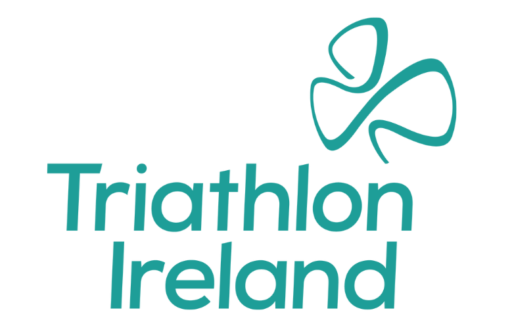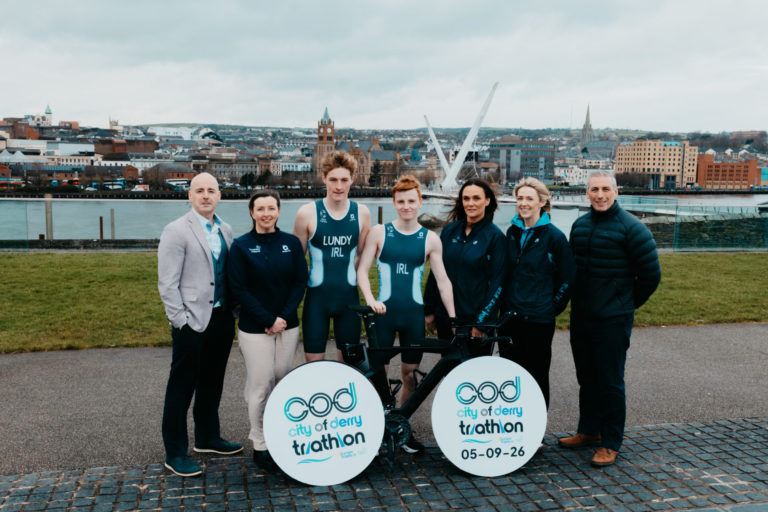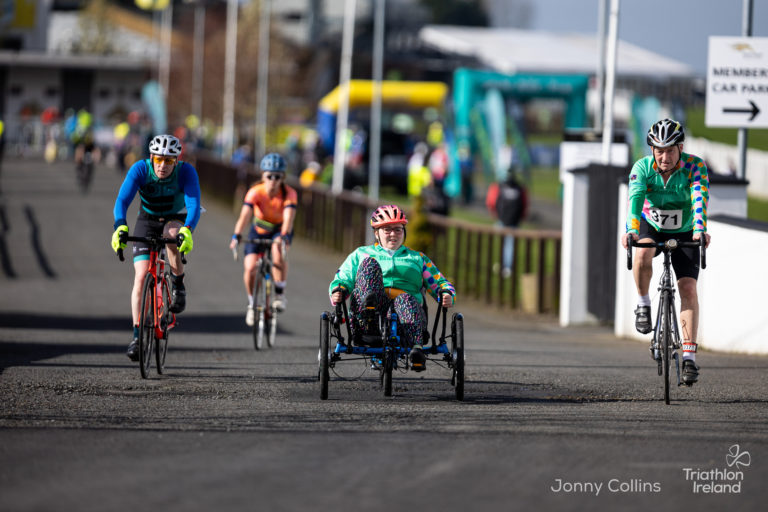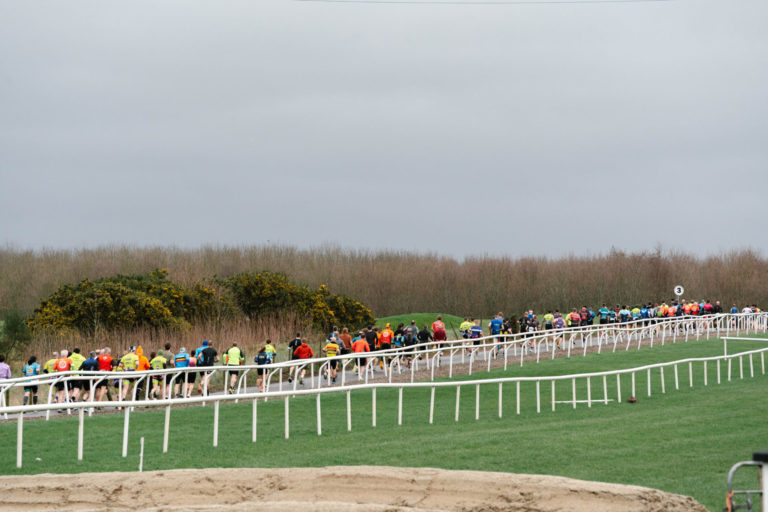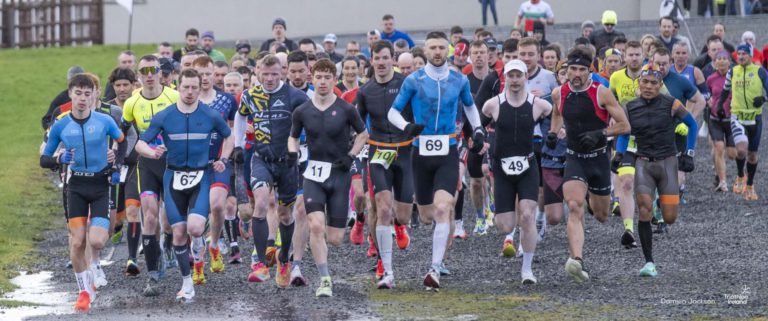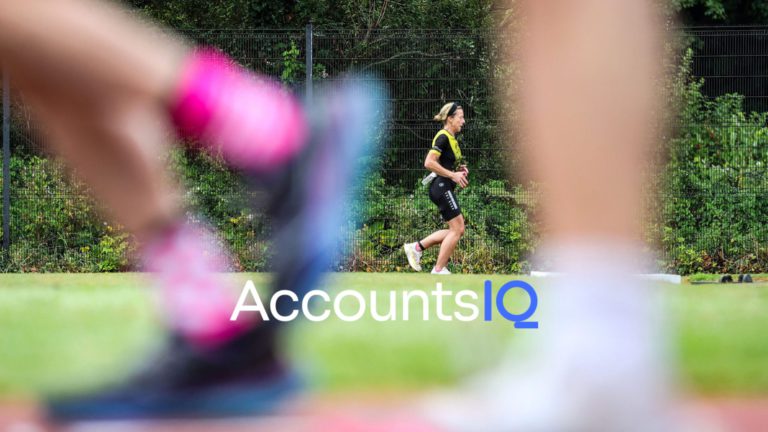#ThisIsMyTriClub: The Role of Children’s Officer
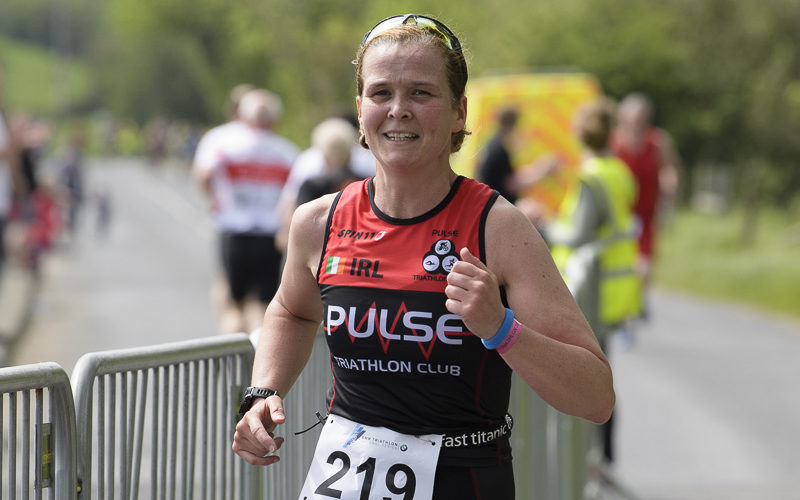
Liz O’Connor has been a member of Pulse Triathlon Club since its inception in 2003, and is one of the founding members. Over the last number of years, Liz has been key to the growth of the hugely popular junior section of the club. Here she gives us some insight into the role of Children’s Officer for a triathlon club and the journey of growing the club’s junior section.
This year, Liz is Women’s Officer for Pulse Triathlon Club. Back in 2015 Liz became Children’s Officer through her children’s involvement in the sport and has also since become a Level 1 triathlon coach.
“Initially I was involved on the committee and I was the Membership Officer. Then I had kids and I kind of stepped away from the committee for a while. Then when my son was eight and my daughter was five, I always wanted to get back involved with the club and the position of Children’s Officer came up so that’s how it all fitted together for me.”
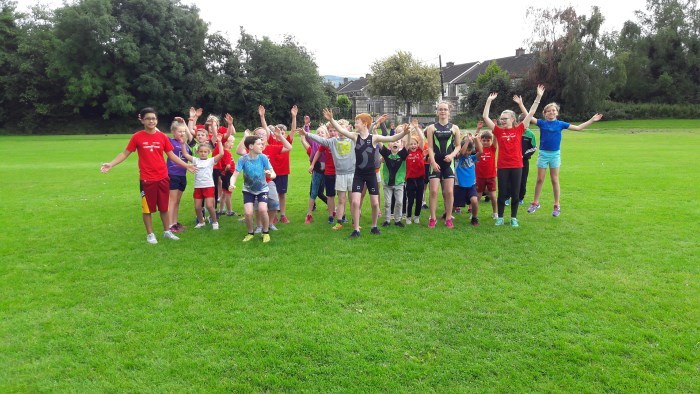
Pulse Triathlon Club run a number of junior events throughout the year – splash and dash, aquathlons, duathlons and triathlons. The club also host a Summer Camp, which first started in 2017. Run in conjunction with Belpark Triathlon Club, young triathletes from the age of seven to twelve take part.
“Initially, most of the children involved were children of members. When we ran the Summer Camp, we ran it in such a way that we could introduce triathlon into the larger community. We ran it as cheaply as possible and opened it to all levels and all abilities, to show people what was involved in triathlon.”
“Our ethos has always been to make triathlon a sport for everyone, all levels and abilities and to provide a safe welcoming environment for people to train in. We have done that for both adults and children.”
Establishing the Junior Committee
As the club grew, the club set up a junior committee in addition to the mandatory Children’s Officer and Designated Liaison Person roles;
“Initially it was me doing it on my own and then because things got so big, in 2019 we set up a junior committee that mirrors the adult committee.”
“How Pulse run it now is that we have the Junior Chairperson and then a secretary, we have someone who looks after membership, gear and then a training person. Initially those roles can probably be amalgamated.”
Liz encourages any who like to become involved to take on this role, while it is a varied role, it’s one she has really enjoyed;
“I would encourage anybody to get involved. From my point of view, I’m involved because my kids are involved and they enjoy it, so that keeps me involved in the junior section. The people who are involved with it…they’re there because they want the best for their kids and they want to be involved. It’s a great ‘feel good’ factor for everybody involved!”
“Particularily when it comes to the events and you see how happy the kids are when they complete their first triathlon, and then as they get a bit older and you see how they progress. We have kids who started with us when they were eight and they’re 16 now and they’re still with us and that’s fantastic. It’s good to keep them involved.”
Pulse Triathlon Club have found that having their junior section has also encouraged some parents to become triathletes!
“We had a parent and child swim, some of the parents who weren’t actually triathletes were swimming as well. Now they are triathletes because of it! It kind of goes both ways, we have kids who started out because their parents were involved. We’ve other kids whose parents got involved because their kids were involved and it’s great, it’s great to see!”
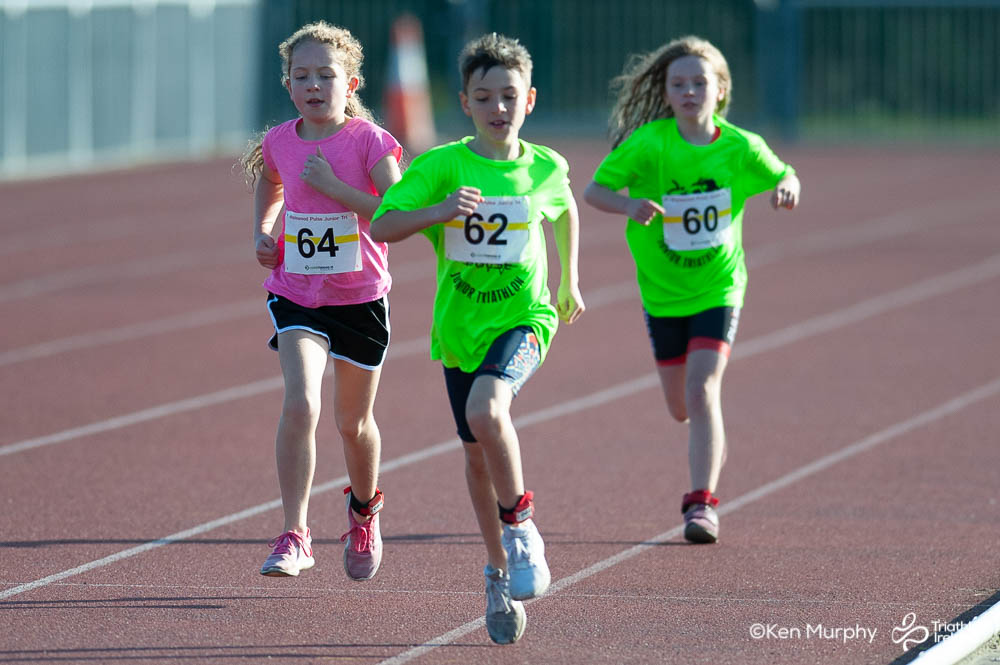
What is Liz’s Favourite Part of being Involved in the Junior Club?
“Seeing the joy on the kid’s faces!…They’re just such great craic, anyone who goes to any kids races will tell you – the funniest part is watching the small kids and they just love it! They get their medal and they are just so proud of themselves and it’s just fantastic.”
Setting Up a Junior Club
In setting up a junior section for the first time, Liz recommends that clubs keep things simple and be mindful that children will also have other activities to timetable into their week. With three sports to train for, it can seem a huge amount of training sessions to organise but Liz advises that Children’s Officers contact neighbouring clubs and work in partnership to get things off the ground.
“Don’t get overwhelmed by everything. There’s three sports involved in triathlon obviously but, especially up to 12 years old, kids are doing so many things. We found that the once a month training sessions was enough.”
The Pulse Junior Section and Children’s Officer Role were already established when Liz took on the role in 2015, but she doesn’t feel that clubs should be daunted by the process. She highlights how the Children First Legislation has established a process for what is required from a club;
“It puts a process in place for everything that you have to do. Start small and say ‘ok we have our junior section’. Open it to members of the club who have kids and from there see how it goes.”
“Look to the club members to see if there’s an appetite, and utilise all the resources within your club and TI, and if anyone would like any help in any area, I would happy to help and advise as much as I can.”
“There are so many benefits to having a junior section and they are the future of the sport.”
For more on how to set up a junior club, click here.
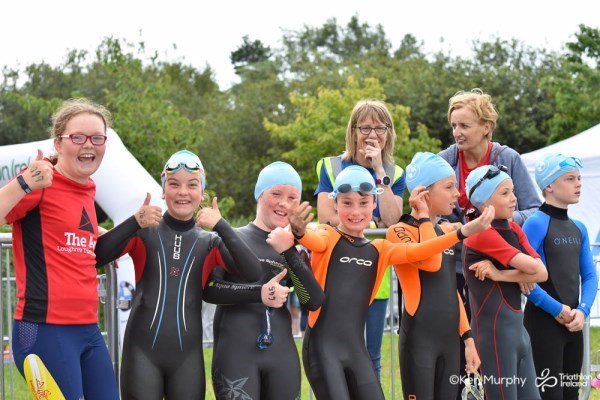
Being a Club Children’s Officer/Designated Liaison Person
The primary role of the Children’s Officer is to create a child centred environment in the club, ensure safe recruitment protocols are followed and be the voice of the children in the club. The Children’s Officer should be visible and junior members should know who they are. They are responsible for ensuring that the club has all the necessary safeguarding protocols in place for a safe and fun environment for junior triathletes. See further details on the Triathlon Ireland website here.
In some clubs, the Club Children’s Officer will also organise venues, risk assessment, emergency action plan and first aid for each training session. This depends on the size of the club and the number of volunteers involved in running the junior section.
“Starting off there’s probably a little bit to do, but it’s very doable. If you have people who are interested and there’s an interest in having a junior section, or if they take over the role in a club who already has a junior section all of that stuff will be in place.”
“If it’s not, there’s processes in place, there’s a huge amount of resources in Triathlon Ireland and Niamh O’Gorman (Triathlon Ireland Head of Education & Development) is great for finding out information and anything that needs to be done.”
All junior clubs must have in place a Club Children’s Officer and Designated Liaison Person. These roles can be held by the same person in smaller clubs, or by two different people in larger clubs.
Five Safeguarding Requirements for the role:
- Attend a 3 hour Safeguard 1 course/Safeguarding Children and Young People in Sport*.
- Attend a 3 hour Safeguard 2 course – Children’s Officer. (DLP does not need to attend Safeguard 2 unless they are acting in a dual role as CO & DLP).
- Attend a 3 hour Safeguard 3 course – Designated Liaison Person. (ROI only)
- Undertake Garda Vetting or Access NI through TI.
- Complete the appropriate code of conduct. Form 8 OR Form 10
For more on the role of Children’s Officer, visit the Safeguarding section of our website.
